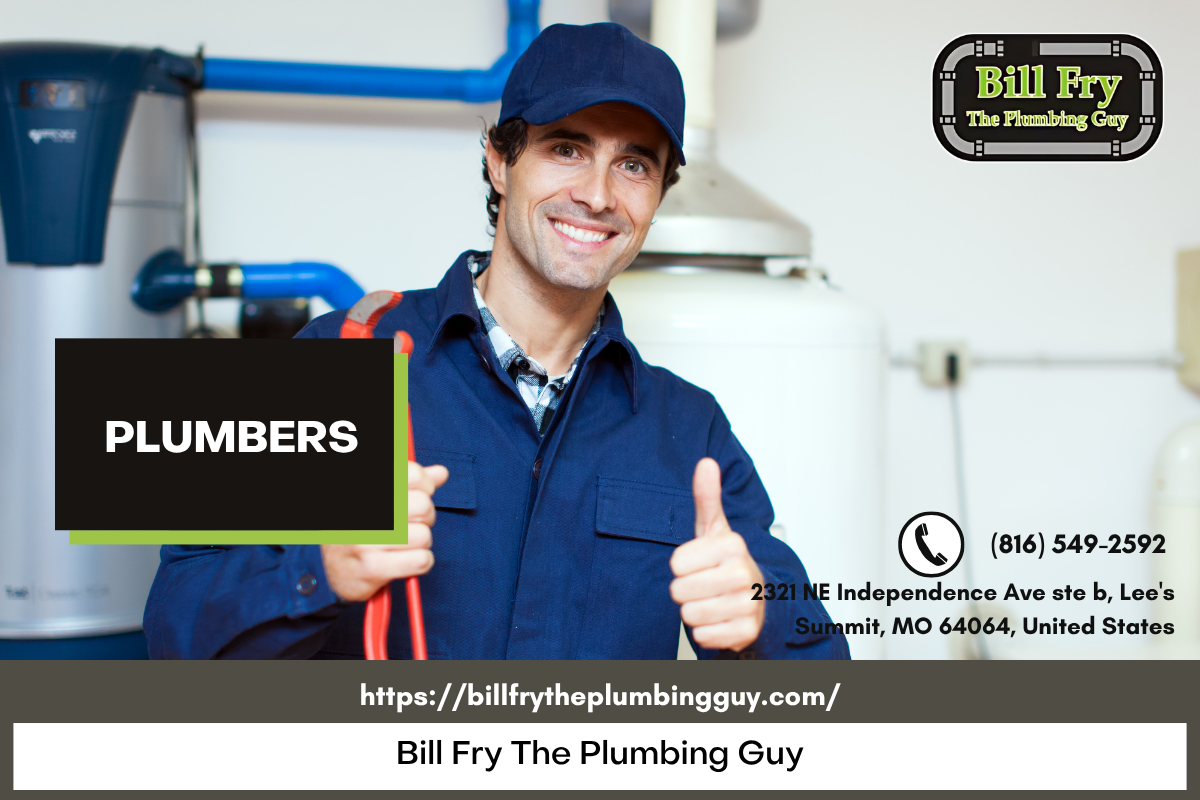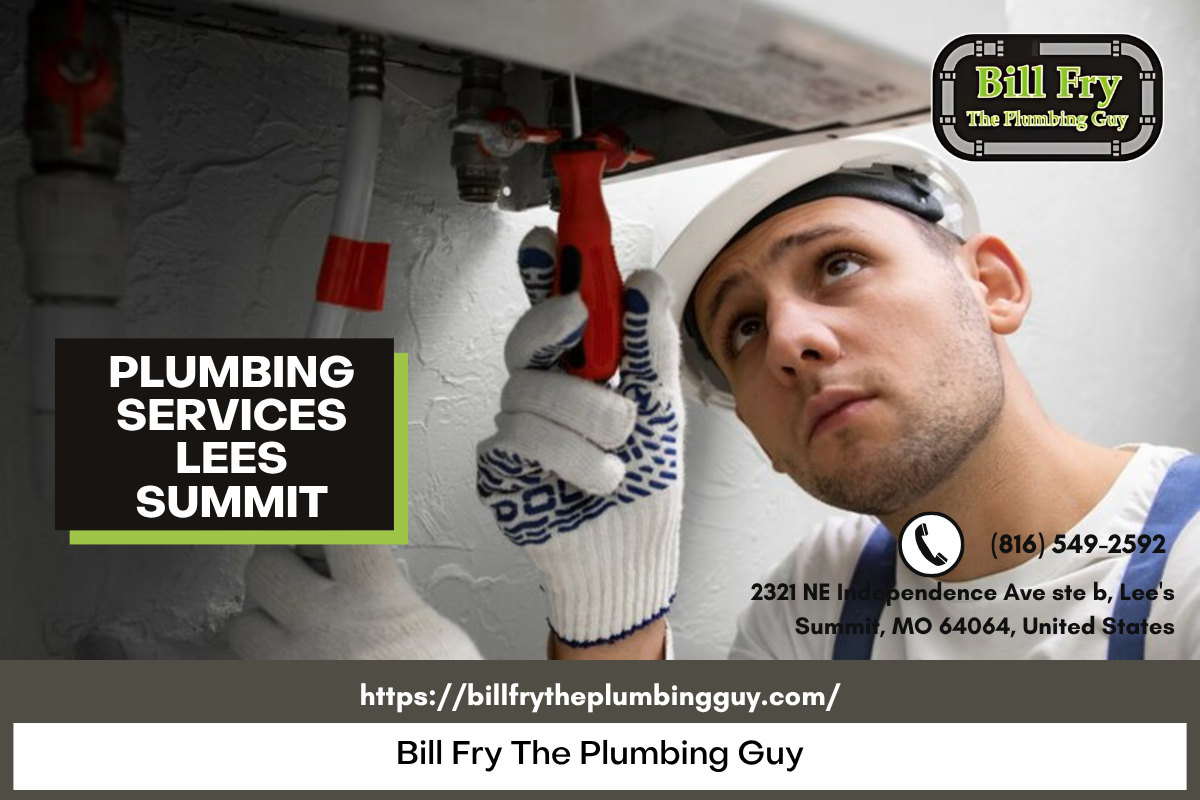


Introduction
Plumbing—an essential yet often overlooked component of our daily lives—serves as the backbone of residential comfort and sanitation. Whether it's the simple act of turning on a faucet or flushing a toilet, we rely on intricate plumbing systems to function seamlessly. This article will delve into the intricacies of residential plumbing systems, providing a comprehensive overview that can help homeowners understand their systems better, recognize potential issues, and appreciate the expertise offered by local plumbers.
As we explore this topic, we'll touch on various aspects such as common plumbing components, maintenance tips, and how to find reliable plumbing services in your area like "plumbers Lees Summit" or "plumbing services Lees Summit." So let’s dive into Understanding the Basics of Residential Plumbing Systems.
What is a Residential Plumbing System?
A residential plumbing system comprises all the pipes, fixtures, and appliances that transport water throughout your home. It serves two primary functions: delivering clean water for consumption and sanitation while removing wastewater safely.
Key Components of Residential Plumbing Systems
Water Supply System- Responsible for bringing fresh water into your home. Consists of pipes that connect to the municipal supply or a well.
- Removes wastewater from sinks, showers, toilets, and appliances. Includes drainpipes and vent pipes ensuring proper flow and air circulation.
- Essential devices like sinks, toilets, bathtubs, and faucets where water is accessed or waste is removed.
- Water-using devices such as dishwashers, washing machines which are connected to the plumbing system.
- Control water flow within your system; includes shut-off valves that can stop water in emergencies.
Understanding these essential components allows homeowners to grasp how their plumbing systems work together efficiently.
The Importance of Regular Maintenance
Just like any other system in your home, regular maintenance is pivotal for preventing costly repairs down the line. Neglecting your plumbing can lead to significant issues such as leaks or clogs that may disrupt daily routines.
Benefits of Regular Plumbing Maintenance
- Increased Lifespan: Regular check-ups can extend the life of your plumbing fixtures. Efficiency: Well-maintained systems use less water and energy. Cost Savings: Preventative maintenance can save you money by avoiding major repairs. Peace of Mind: Knowing your system is in good condition reduces stress about potential issues.
Common Maintenance Tasks for Homeowners
Inspecting visible pipes for leaks Cleaning aerators on faucets Flushing out water heaters annually Checking for signs of mold or mildew around fixturesBy staying proactive with maintenance tasks, you'll be better equipped to handle any future issues that arise.
The Role of Professional Plumbers
When it comes to maintaining or repairing your plumbing system, hiring professional plumbers is essential. They possess the training and experience necessary to tackle even the most complex problems effectively.
Why Choose Local Plumbing Services?
- Familiarity with Regional Codes: Local plumbers understand codes specific to areas like Lees Summit. Quick Response Time: A plumber near you can provide faster service during emergencies. Community Trust: Local businesses often build strong reputations based on quality service.
If you're searching for trustworthy assistance in your area, consider reaching out to "plumbing services Lees Summit" or "Lees Summit plumbers."
Common Residential Plumbing Issues
Every homeowner encounters plumbing problems at some point. Being aware of common issues helps you identify them early before they escalate into bigger concerns.
1. Leaking Faucets
Leaking faucets are not only annoying but also wasteful—dripping taps can lead to significant water bills over time.
Causes
- Worn-out washers Corroded valve seats
Fixes
It's often feasible for homeowners to replace washers themselves if they have basic tools and some DIY skills.
2. Clogged Drains
Clogs are commonly caused by hair buildup in shower drains or grease accumulation in kitchen sinks.
Solutions
Utilizing a plunger can clear minor clogs; however, persistent issues might require professional intervention from an experienced plumber.
3. Running Toilets
A running toilet wastes gallons of water each day—a frustrating problem many households face.
Diagnosis
Typically caused by a faulty flapper valve or chain issues within the toilet tank.
Repair Tips
This is usually a straightforward fix involving part replacement available at local hardware stores.
4. Low Water Pressure
Experiencing low pressure? It could stem from mineral buildup inside pipes or even city supply issues during peak hours.
Solutions
Flushing out pipes may resolve minor buildup; otherwise contacting professionals might be necessary if problems persist.
5. Burst Pipes
Burst pipes are typically due to freezing temperatures or extreme pressure buildup within pipelines—this requires immediate attention!
Emergency Steps
Shut off main water supply immediately and contact emergency plumbing services right away!
6. Water Heater Issues
Dealing with insufficient hot water? Your heater may need inspection for sediment buildup hindering performance!
Maintenance Tips
Regularly flush out sediment from tanks according to manufacturer's recommendations—you’ll thank yourself later!
By recognizing these common problems early on—and knowing when it’s time to call in professionals like "plumbers near me"—you'll save both time and money!
How To Choose The Right Plumber
Finding a reliable plumber isn't just about picking someone randomly from an online search engine—it requires careful consideration! Here are factors worth evaluating:
Credentials & Licensing
Ensure they’re licensed in your state; this guarantees they meet industry standards!
Experience
Look for specialized experience relevant specifically towards residential needs rather than commercial work which differs significantly!
Reviews & Recommendations
Check online reviews (Google/Yelp) along with asking friends/family who’ve hired them before!
Estimates & Pricing
Get multiple estimates beforehand so you know what constitutes fair pricing based on local averages without surprise costs later down line!
Warranty/Guarantee Policies
Opt for those offering warranties/guarantees—that shows confidence in their workmanship!
By following these guidelines while choosing local “plumbing services,” you’ll ensure peace-of-mind regarding who handles one crucial aspect of keeping household running smoothly—its plumbing system!
DIY vs Hiring Professionals: When To Call A Plumber?
Sometimes DIY solutions seem appealing due largely due cost savings—but knowing when it’s best leave it up experts saves headaches long-term too!
DIY Tasks Appropriate For Homeowners
1) Replacing faucet aerators 2) Unclogging minor drains using plungers 3) Flushing out sediment from heaters
These tasks require minimal tools/knowledge allowing most homeowners tackle without issue!
Situations Calling For Professional Intervention
1) Major leaks requiring extensive pipe replacements 2) Complex installations (e.g., new bathrooms/kitchens) 3) Backflow prevention installations
These scenarios could pose greater risks if attempted independently leading potential further damage—or even injury! Always err towards caution when unsure whether tackle project yourself versus seeking professional guidance first!
FAQ Section
1) What Are The Main Types Of Pipes Used In Residential Plumbing?
The three most common types include:
- PVC (Polyvinyl Chloride): Lightweight plastic used primarily for drain lines! PEX (Cross-linked Polyethylene): Flexible tubing ideal for both hot/cold supplies! Copper: Long-lasting metal piping popular historically still seen today especially older homes!
Knowing these basics prepares homeowners understanding materials installed throughout property aiding future repair decisions too!
2) How Often Should I Have My Plumbing Inspected?
At least once every 1–2 years depending upon usage levels particularly homes with larger families may benefit more frequent evaluations catching small problems before escalating into larger ones needing costly repairs down line!
3) What Should I Do If My Toilet Overflows?
First shut off main water https://riverrgyb341.image-perth.org/seasonal-plumbing-tips-from-top-plumbers-in-lee-s-summit supply connected directly behind unit then clean up excess standing-water using towels/mops while monitoring around base checking connections ensuring nothing else leaking elsewhere post-event! Afterward assess damages call qualified plumber assess further needed repairs if any remain lingering after initial cleanup efforts completed successfully!
4) How Can I Prevent Clogs In My Drains?
Avoid dumping grease/oils down kitchen sink; utilize food strainers catching leftover debris during meals + flush periodically using baking soda/vinegar concoctions keeping lines clear naturally without harmful chemicals damaging existing infrastructure over-time instead opting greener alternatives whenever possible!
5) Is It Safe To Use Chemical Drain Cleaners On Clogged Drains?
While chemical cleaners may provide short-term relief beware prolonged usage could corrode pipe materials leading increasing risk future leaks/breakdowns needing repairs sooner than normal lifespan expected otherwise resulting large expenses unexpectedly later down road instead consider natural alternatives discussed previously!
6) How Do I Find Reliable Plumbers Near Me?
Start by searching online directories focusing local reviews alongside word-of-mouth referrals friends/family members suggest trusted options then compare estimates among chosen candidates making final decision based upon who meets criteria listed earlier ensuring satisfaction ahead every step taken along journey towards resolving any tricky situations encountered along way ultimately finding great fit overall satisfaction achieved throughout entire process involved here today moving forward confidently knowing all bases covered thoroughly examined prior diving headfirst into something potentially risky otherwise without proper planning ahead wisely beforehand!!
Conclusion
In closing this comprehensive guide on understanding residential plumbing systems—remember knowledge truly empowers homeowners make informed decisions regarding what happens inside walls unseen until something goes wrong ultimately impacting daily living experience immensely! By remaining vigilant through regular maintenance checks coupled with understanding key components outlined here enables everyone gain confidence addressing small hiccups themselves while also recognizing when it’s best call qualified professionals like “plumbers lees summit” promptly resolving bigger concerns swiftly effortlessly alleviating stressors piled high atop shoulders already burdened enough everyday life brings forth challenges faced regularly pushing back against uncertainties lurking just beneath surface always ready strike unexpectedly anywhere anytime requiring diligence preparedness alike tackling whatever thrown direction next time around ready-to-go whenever needed most thereby ensuring smooth sailing ahead throughout every interaction involved overall journey navigating waters deep within realm homeownership itself efficiently effectively completed seamless fashion achieving desired outcomes satisfied customers alike time again living lives freely enjoying comforts found therein fully appreciating role played behind scenes unseen consistently maintaining optimal performance levels managed well continuously moving forth confidently onward forward future ahead bright possibilities awaiting eager minds willing brave unknowns lie beyond horizon waiting discovery soon enough one step closer becoming reality dreams fulfilled undoubtedly no doubt whatsoever!!